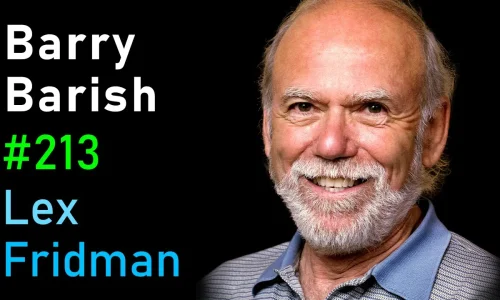See all Lex Fridman transcripts on Youtube

Barry Barish: Gravitational Waves and the Most Precise Device Ever Built | Lex Fridman Podcast #213
2 hours 22 minutes 55 seconds
🇬🇧 English

Omnivision Solutions Ltd
- Getting Started
- Create Transcript
- Pricing
- FAQs
- Recent Transcriptions
- Roadmap